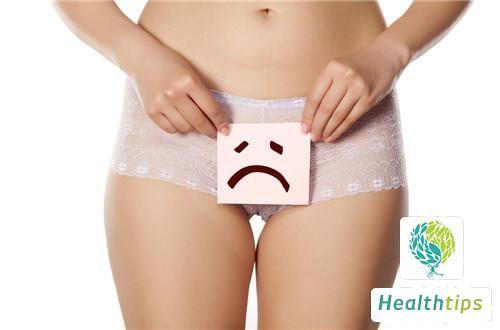If there are signs of inflammation in the perineal area, it is important to promptly seek medical attention for formal examination. Generally speaking, this condition is likely to be related to some bacterial infections, with vulvitis being the most common. There are many bacteria that can cause vulvitis, including bacteria, viruses, fungi, chlamydia, and mycoplasma. It is necessary to identify the specific cause and then carry out targeted treatment to avoid causing greater harm to women's health.
 Firstly, local treatment can be applied to the vulva. Patients can cooperate with doctors to use different liquids, whether it is for vulvar bath or sitz bath. During the bath or sitz bath, attention should be paid to the temperature, concentration, duration of the solution, and the precautions for using the bath liquid. Female patients can also consult with their doctors to see if it is necessary to apply some antibiotic ointment to the vulva as appropriate.
Secondly, women should pay attention to maintaining cleanliness and dryness of the vulva, especially during special periods such as menstruation and pregnancy. In addition, it is necessary to clean the vulva and change clean underwear every day. Avoid using stimulating soaps or medications when cleaning the vulva to prevent irritation. Cold or hot water should also be avoided. Wearing tight chemical fiber underwear is one of the causes of vulvitis, so women should avoid wearing such underwear and tight pants, and it is better to wear cotton underwear.
Thirdly, when women have vulvitis, they should avoid eating stimulating foods as they can exacerbate itching and inflammation in the genital area. This includes foods like fish, shrimp, crab, chicken heads, chicken wings, pork head, goose, etc. Additionally, spicy and stimulating foods such as cream, chocolate, and fried dough sticks should be minimized as they can increase body humidity and heat, leading to increased vaginal discharge, which is not conducive to treatment. Tobacco and alcohol are also highly stimulating and can worsen inflammation, so it is advisable to quit smoking and drinking.
Firstly, local treatment can be applied to the vulva. Patients can cooperate with doctors to use different liquids, whether it is for vulvar bath or sitz bath. During the bath or sitz bath, attention should be paid to the temperature, concentration, duration of the solution, and the precautions for using the bath liquid. Female patients can also consult with their doctors to see if it is necessary to apply some antibiotic ointment to the vulva as appropriate.
Secondly, women should pay attention to maintaining cleanliness and dryness of the vulva, especially during special periods such as menstruation and pregnancy. In addition, it is necessary to clean the vulva and change clean underwear every day. Avoid using stimulating soaps or medications when cleaning the vulva to prevent irritation. Cold or hot water should also be avoided. Wearing tight chemical fiber underwear is one of the causes of vulvitis, so women should avoid wearing such underwear and tight pants, and it is better to wear cotton underwear.
Thirdly, when women have vulvitis, they should avoid eating stimulating foods as they can exacerbate itching and inflammation in the genital area. This includes foods like fish, shrimp, crab, chicken heads, chicken wings, pork head, goose, etc. Additionally, spicy and stimulating foods such as cream, chocolate, and fried dough sticks should be minimized as they can increase body humidity and heat, leading to increased vaginal discharge, which is not conducive to treatment. Tobacco and alcohol are also highly stimulating and can worsen inflammation, so it is advisable to quit smoking and drinking.




















